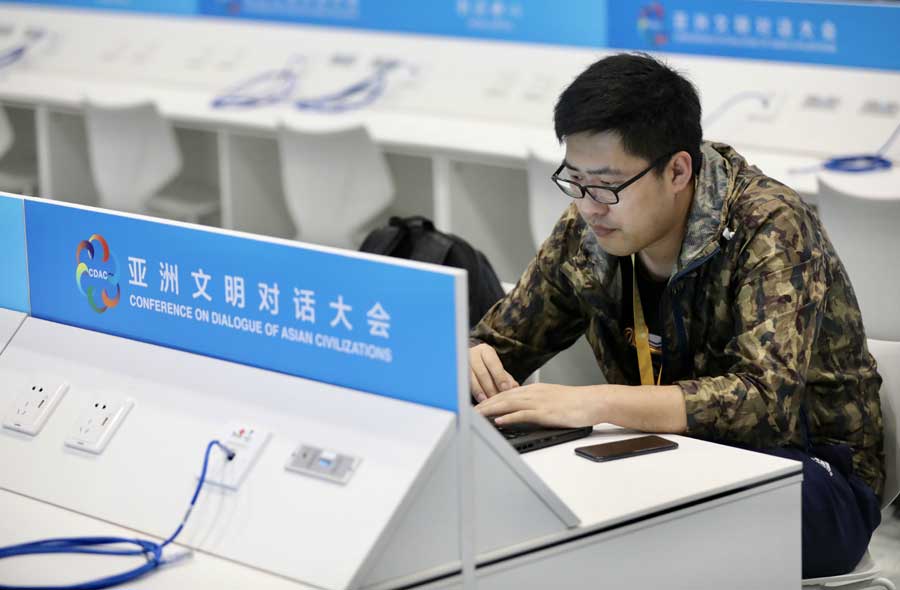Asian dialogue aims to build stronger sense of community: China Daily editorial
China Daily | Updated: 2019-05-14 20:24

Barely three weeks after it hosted the Second Belt and Road Forum for International Cooperation, which attracted participants from around the world, Beijing is now hosting the Conference on Dialogue of Asian Civilizations.
Participants from the 47 Asian countries, plus those from outside the region, gather on Wednesday in the Chinese capital to celebrate cultural diversity, enhance cultural bonds, and foster a fresh sense of community.
Themed inter-civilization exchanges and an Asian Community with a Shared Future, the event is aimed at boosting self and mutual confidence among Asian civilizations.
The event carries such weight on Beijing's 2019 political agenda that President Xi Jinping is expected to speak multiple times.
Officially, this is the second of this year's three most important home court diplomatic events, with the third, the second China International Import Expo, forthcoming.
Such platforms derive from the leadership's firm belief in the positive role cross-culture, inter-civilization communication can play in facilitating trust and cooperation between and among countries.
A dialogue of civilizations is neither new, nor a purely Chinese idea. The necessity of such a dialogue has seen abundant elaborations in the past and at present because of its constructive potential. That Beijing has committed to it with such sincerity and seriousness testifies to a peculiar sense of urgency in the face of the strong headwinds from unilateralism that threaten to further erode the sense of community in Asia and beyond.
While the Belt and Road Initiative is focused more on the hardware side, the ongoing conference is a parallel endeavor to promote what Beijing sees as "spiritual connectivity". Which it believes is conducive to regional peace and common prosperity.
Asia has a proud history as a wellspring of human civilizations. Four of humanity's five thought systems in the Axial Age were born here. So were five of the present-day world's most popular religions-Christianity, Islam, Hinduism, Buddhism and Taoism.
Diverse as they are, the common desire for peace and strong sense of community they share have contributed tremendously to their generally harmonious coexistence and prosperity through the centuries.
Such historical cultural bonds are particularly valuable as unilateralist tendencies in state-to-state relations inspire extreme selfishness.
Asia is the most economically vibrant region in the world. But in some ways, it is also one of the most politically volatile. Interregional dialogue, from the perspective of inter-civilization communication, can play a constructive role in facilitating mutual understanding and hence trust. Both of which are essential now that the region is the bright spot in the global economic landscape.
























